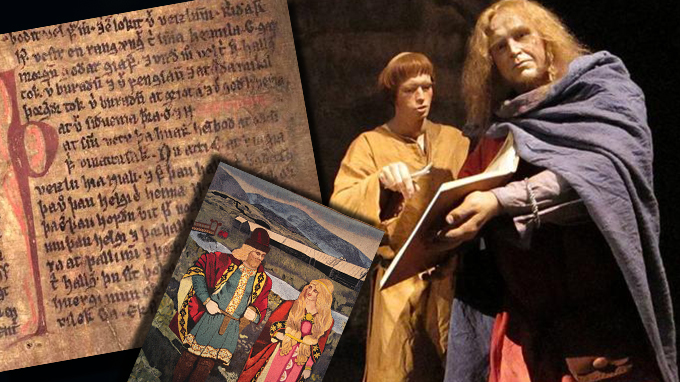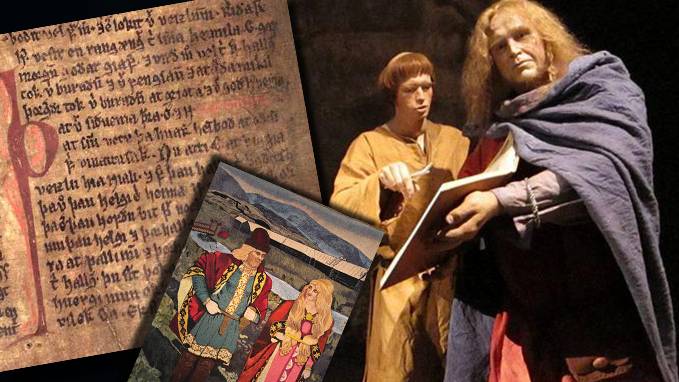The Sagas of the (Viking) Icelanders Shed Light on Golden Age
Source: ancient-origins.net

The Sagas of the Icelanders have long been preserved as the most comprehensive specimen of the literary culture of the 13th and 14th centuries of Iceland. In writing these sagas, many attributes of the 10th and 11th centuries were conserved, particularly individual biographies, the history of family feuds, and the overall evolution of the one of the greatest settlements of the Vikings.
Unlike the mythical tales of the Greeks, the Icelandic sagas depict real men and women—real great families—struggling with and overcoming extraordinary circumstances and adventures to forge a new land. Though the sagas' author is unknown, the writings have been considered the height of Icelandic literature throughout the centuries, and remain the written epitome of Viking ideals, values, and beliefs.
The sagas describe the years around the conversion of Iceland to Christianity, roughly from 930 to 1030 CE. Iceland is thought to have been founded by the Vikings in the year 874 (there is new evidence that the settlement might have begun sooner than 874, due to the remains of a cabin found in Hafnir), though prior to their colonization, the island was inhabited by Irish monks. If this date is correct, the land remained a pagan country for less than two hundred years before Christianity took over as the primary religion.
The sagas depict what was and is known as the "Golden Age" of Iceland, the period of vast migration by the Vikings and the settlement of one of the most unique communities they ever founded. Iceland was valued as a commonwealth, a unique concept at the time that had previously been unheard of in the home country. It was comprised of numerous chieftains and no kings—unlike Norway, Sweden, and Denmark—and was wholly valued as free land. rthermore, women are considered equally strong individuals of Viking culture in their own right, responsible for the house and farms when their men are away, and charged with properly marrying off their children in such absences. Gender roles were clearly defined in Norse society, however women were valued highly in the Viking world, compared to other cultures of that era, and thereby influenced the sagas as much for the better as for the worst.
[...]
Read the rest: ancient-origins.net






















